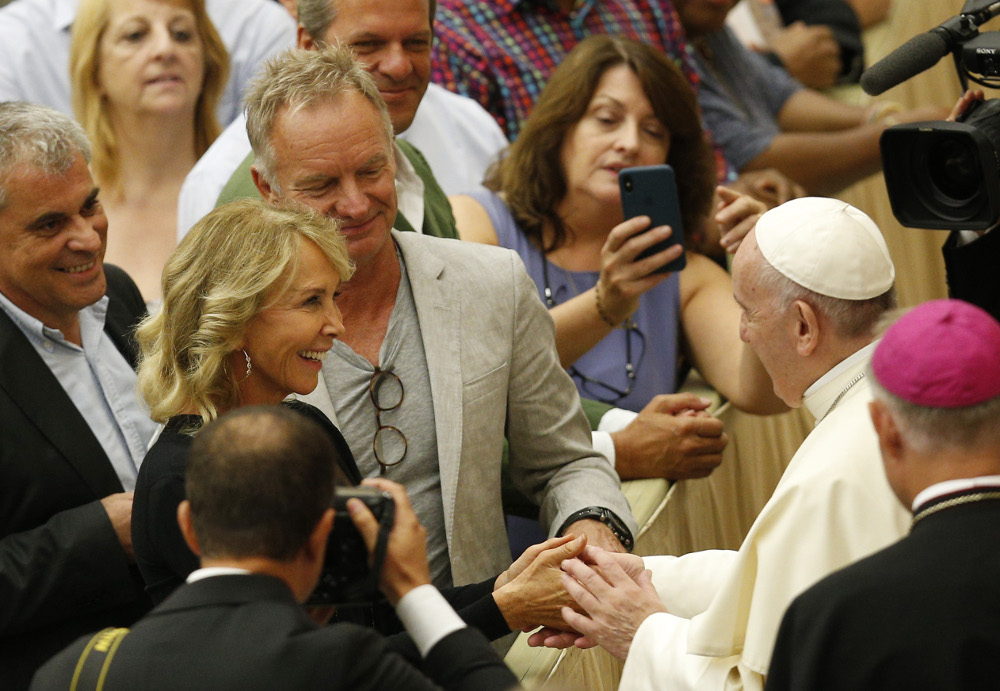
Pope Francis greets English singer Sting, accompanied by his wife Trudie Styler, during his general audience in Paul VI hall at the Vatican Aug. 8. (CNS/Paul Haring)
Like the ancient Israelites, Christians today also can fall into the temptation of creating their own idols when difficulties and uncertainties arise, Pope Francis said.
"To escape precariousness human nature looks for a 'do-it-yourself' religion. If God does not show himself, we create a tailor-made god," the pope said Aug. 8 during his weekly general audience.
Among those present for the audience was Grammy Award-winning musician Sting, who composed the music for "Giudizio Universale: Michelangelo and the Secrets of the Sistine Chapel," a show developed in collaboration with the Vatican Museums and featuring high-definition recreations of the Sistine Chapel frescoes painted by Michelangelo.
Continuing his series of audience talks about the Ten Commandments, Pope Francis said he wanted to return to the theme of last week's talk on idolatry because "it is very important to know this."
He reflected on the reading from the book of Exodus in which the Israelites ask Aaron to build a golden calf to worship while Moses was on the mountain receiving the commandments.
Moses' absence, Pope Francis explained, triggered insecurities and anxieties in the people, leading to the creation of the idol that embodied "the desires that give the illusion of freedom but instead enslave."
"The calf had a double meaning in the ancient East. On one hand, it represented fruitfulness and abundance; on the other hand, energy and strength. But above all, it was made of gold because it is a symbol of wealth. Success, power and money. These are the temptations of all time," the pope said.
Advertisement
Idolatry, he continued, stems from the inability to trust in God. In the absence of this trust, Christians lack the strength to resist succumbing to doubt in times of uncertainty and precariousness.
Without God, he added, it "is easy to fall into idolatry and be content with meager reassurances."
"Freeing the people from Egypt wasn't so difficult for God. He did it with signs of power and love," the pope said. "But God's greatest work was to remove Egypt from the heart of the people; that is, to remove idolatry from the heart of the people. God continues to work to remove it from our hearts."
Pope Francis said that God chose to save humanity through the weakness of Christ's suffering on the cross and "that by our own weaknesses, we can open ourselves to God's salvation."
"Our healing comes from the one who made himself poor, who accepted failure, who took away our precariousness to fill us with love and strength," the pope said. "He comes to reveal to us God's fatherhood. In Christ, our frailty is no longer a curse but a place of encounter with the father and source of strength from above."




